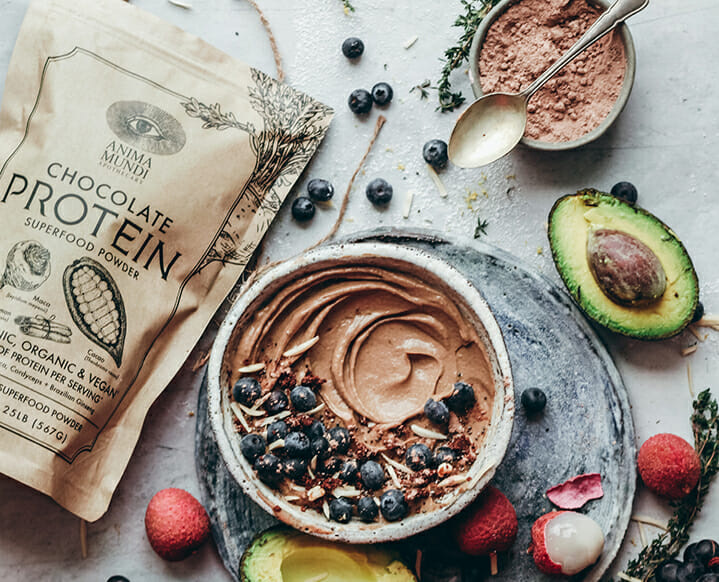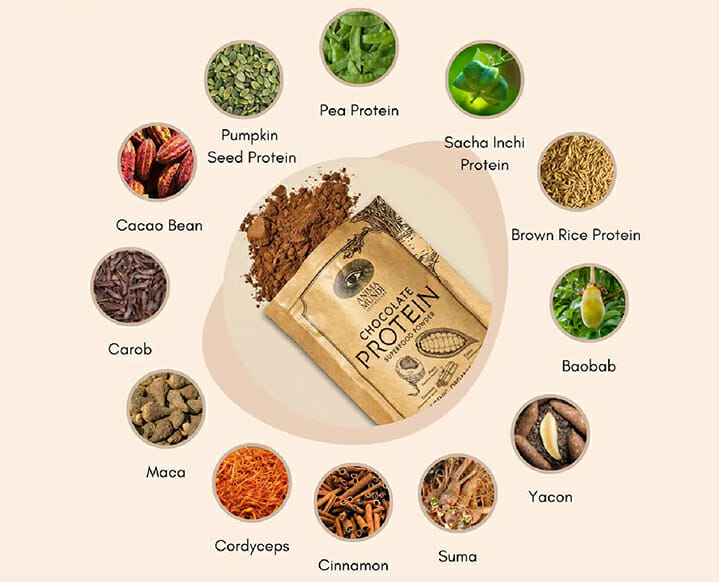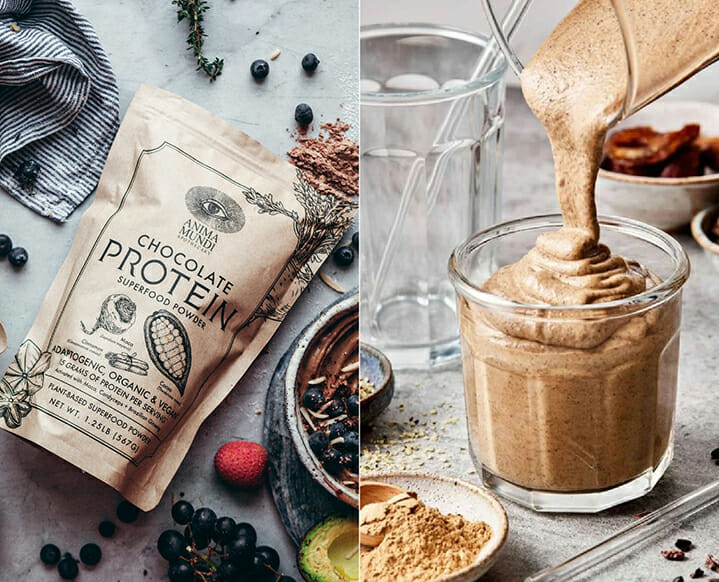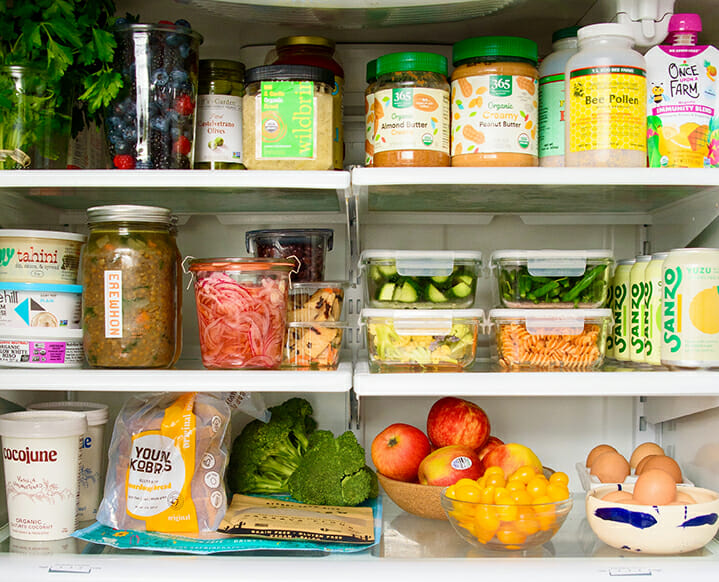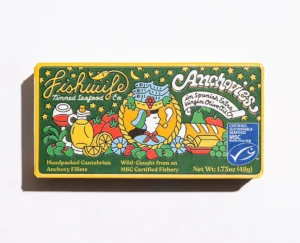
today, Dave Asprey's new book Smarter Not Harder hits shelves, and I've been poring over it for weeks. As a former TCM guest editor, creator of Bulletproof Coffee, host of The Human Upgrade podcast, and self-proclaimed “father of biohacking,” Dave's books always hit hard.
We appreciate Asprey's zeal for diving deep on the newest science and forging progress in the way we approach food, health, technology, and the way they intersect -- however controversial his takes may be (vegans, beware).
In the new book, one topic stood out to me most. In this excerpt from Smarter Not Harder, Dave talks about the modern diet and our over-consumption of anti-nutrients, specifically phytic acid. Enjoy this excerpt and skim our actionable suggestions below.
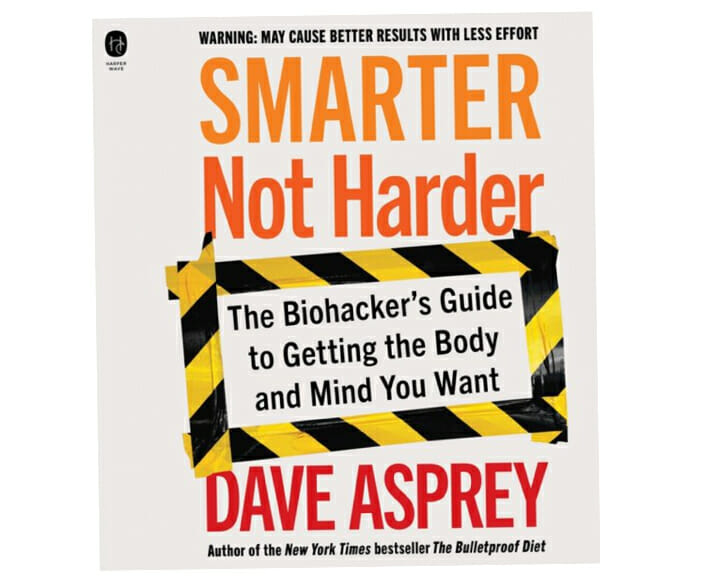
Let's Talk About Phytic Acid: Dave Asprey Wants You To Think About Anti-Nutrients
The biggest cause of friction in your diet is a natural plant chemical called phytic acid. Phytic acid is a potent anti-nutrient that binds to calcium, iron, magnesium, chromium, manganese, and zinc; when it binds to a mineral, it creates a compound known as phytate.
Once that binding happens, your body can no longer process the mineral and you get stuck in a less functional, less energetic state. Phytic acid has become a much bigger problem in the last decade as Big Food companies have succeeded in selling “plant-based” foods as being good for you and the environment, even though the real reason is that they are high-profit, low-cost foods. Phytic acid was one of the five anti-nutrients I wrote about in my first big diet book, but it’s an even bigger problem than was understood at the time.
The list of foods that are allegedly good for the environment and for you reads like a laundry list of high–phytic acid foods: nuts, seeds, beans, legumes, whole grains, soy, and corn. Humans don’t make meaningful amounts of the enzyme that cancels out phytic acid, so we can’t safely eat those foods unless we undertake arduous preparation techniques. Even worse, Big Food doesn’t have any incentive to use complex processing techniques to reduce the phytic acid in the foods they sell. We’re facing an epidemic of metabolic dysfunction and osteoporosis, and a huge amount of that can be traced to the increased phytic acid in “plant-based” diets in combination with our getting fewer minerals because of nutrient-depleted soil.
It’s a perfect storm nutritionally. We are eating fewer minerals and at the exact same time eating more of the stuff that sucks them out of our bones. The lack of resources is dragging us down.
To operate efficiently and generate full energy, your cells require a full dose of macro, or “big,” minerals (calcium, phosphorus, magnesium, sodium, potassium, chloride, and sulfur), along with trace minerals (iron, manganese, copper, iodine, zinc, cobalt, and selenium) and ultra-trace minerals, which are biologically useful but found in only tiny quantities in Earth’s crust. These minerals help build critical proteins, move chemicals into and out of cells, and transmit signals. Most of us are deficient in at least some of them, and phytic acid is one big reason why.
Reducing the amount of phytic acid in your diet is therefore crucial for having more energy. Just look at the problems caused by mineral deficiencies: Low levels of chromium, vanadium, and selenium are associated with diabetes. A shortage of molybdenum slows down one of the body’s major detox systems. In general, you need minerals to make enzymes, the specialized proteins that facilitate the chemical reactions required to build cells and run your metabolism. Enzymes enable reactions that would normally require a lot of heat and energy to occur with very little energy. Take away the minerals, and your enzymes don’t work properly, causing more friction. Suddenly, you are losing the components that enable the magic of life to happen.
Although scientists have only recently begun to understand the chemical workings of phytic acid, our ancestors knew since prehistoric times that plants contain harmful compounds. The best way to eat grains and seeds (if you must) is to use traditional processing techniques, the kinds that few people do any more: sprout the seeds, then treat them with acid or ferment them, often for several days.
Go to Central America, and look at how the locals used to prepare quinoa. Quinoa can wreck your gut—and it does when you eat it the way it’s served now in the West—but in the local tradition, people fermented it for a couple days or pressure-cooked it to make it easier on the digestion. They didn’t know the exact chemical reason why those preparations helped, but what they were doing was breaking down the phytic acid in the plants.
From the book Smarter Not Harder. Copyright ©2023 by Dave Asprey. Published by Harper Wave an imprint of HarperCollins Publishers. Reprinted by permission.
What Next: 4 Ways To Manage Phytic Acid In Your Diet
To leave you with some actionable insights (beyond picking up Smarter Not Harder), here are a few tools that'll help you counter or reduce phytic acid in your diet.
Trace Minerals ConcenTrace Drops | Supplement with trace minerals. Add these low-sodium drops with 72+ ionic trace minerals to water daily.
Learn to soak beans and grains | Review our story on the simplest health tip ever, soaking grains and beans before cooking.
Swap to sprouted products | Where you can, swap to sprouted products. Philosopher Foods Sprouted Almond Butter is a great place to start.
Our Place Always Pan with Spruce Steamer Basket | Lightly steam veggies to help improve bioavailability and partially reduce anti-nutrients. We lover the steamer basket insert from Our Place!
Fermentation Crock | Pickles are all the rage and there couldn't be a better time to embrace the trend. Fermentation has a big impact on anti-nutrients and fermented veggies are great for gut health. Try your hand on fermenting at home with a full crock set-up, or quick pickle with a tutorial like ours HERE.
Terra Cotta Microgreen Sprouter | Start sprouting at home! We love this pretty terra cotta sprouter from Etsy if you really want to commit to the habit, but you can start even more simply with tips from our recent sprouting class HERE.
The post Dave Asprey On Anti-Nutrients + The Deficiency No One Is Talking About appeared first on The Chalkboard.
from The Chalkboard https://ift.tt/hLWdAU3
via IFTTT
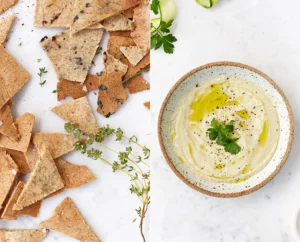



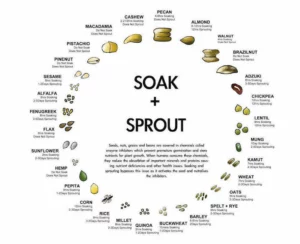


 Much of the aesthetic influence comes from coastal regions with plastered walls, soft woods, clay wall lights and our artwork. The
Much of the aesthetic influence comes from coastal regions with plastered walls, soft woods, clay wall lights and our artwork. The 

